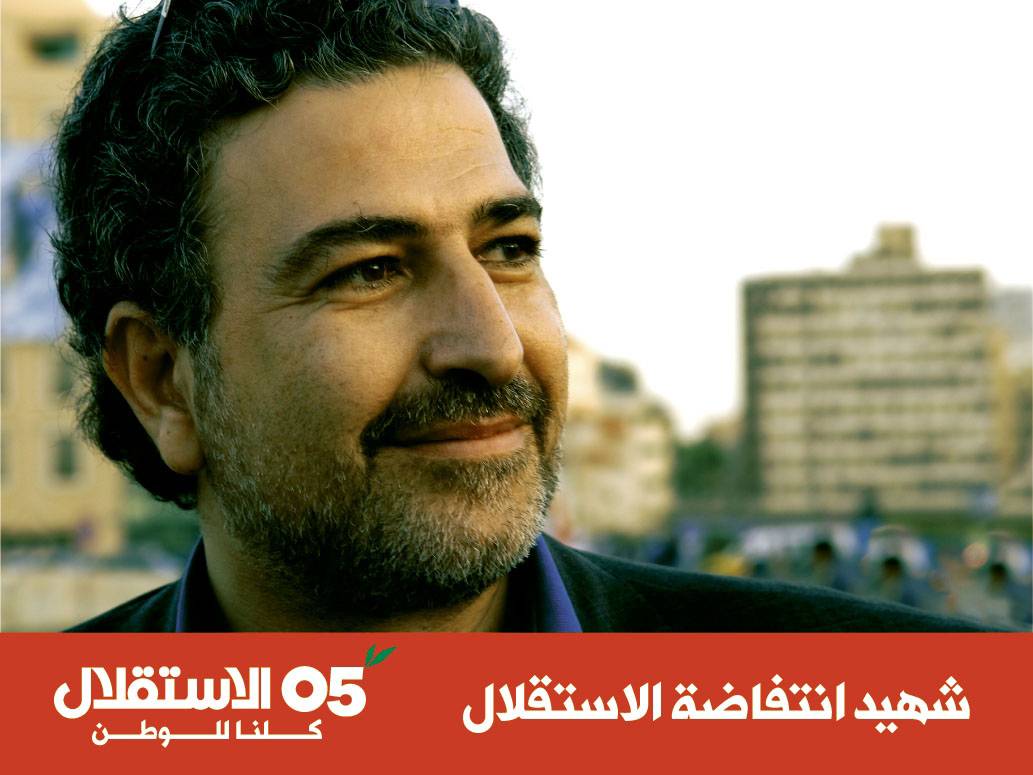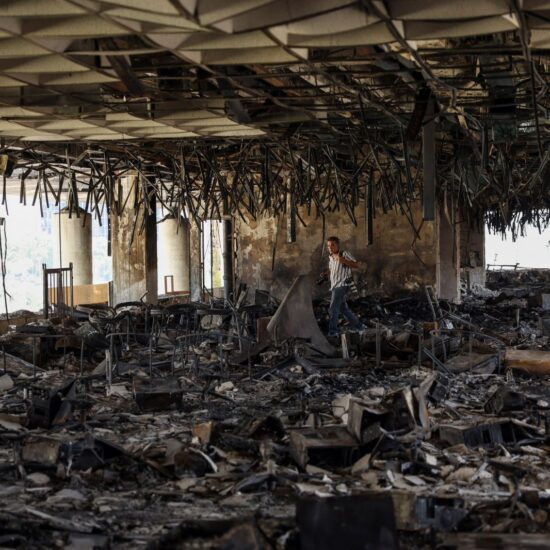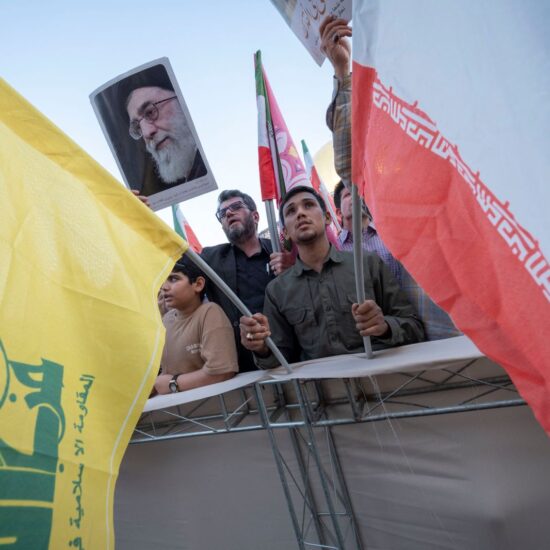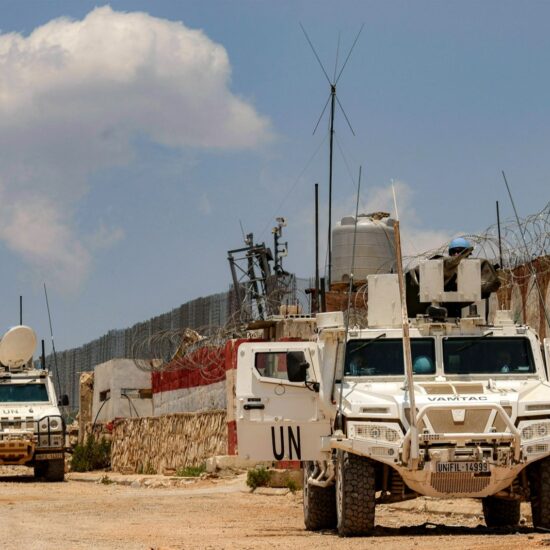
Elissa Bou Nader dives into the lessons from Lebanon's March 14 movement, the challenges of sectarian politics, and the imperative of inclusivity and structural reform for a brighter future.
In the tumultuous arena of revolutionary politics, history serves not only as a guide but also as a stark warning. Time and again, the pages of history reveal the aspirations and struggles of those who dared to challenge the status quo, only to find themselves ensnared in a cycle of disillusionment and defeat. Yet, amidst the wreckage of failed revolutions, new forces of wisdom emerge, waiting to be tapped, particularly for future generations who hope to benefit from these experiences.
Revolutionary “fièvre,” with its promise of liberation and transformation, has captivated the hearts and minds of countless generations. The French Revolution, the Arab revolt, the March 14 Revolution, the Arab Spring, the October 17th uprising—all these popular insurrections called for change, inspiring movements that shook the foundations of their contemporary societies. Yet, too often, these noble aspirations have been derailed by internal discord, external interference, and the weight of historical precedent.
As we stand today, grappling with our problems as a diaspora scattered across the world because of the absence of sovereignty and a dignified life in our home countries, it has become painfully evident that the lessons of history remain unlearned, or at least are lagging in the queue. On March 14, 2005, protesters from diverse sectarian and political affiliations gathered in Beirut, united in their demand for the immediate cessation of Syrian occupation over Lebanon. This historic demonstration stands as the largest gathering ever witnessed in Lebanese history. Emboldened by the Lebanese flag, they fervently called for sovereignty, freedom, and independence. As a USJ alumna, I cannot but express my heartfelt gratitude to the students of the Faculty of Law at the time, situated on that famous little street near Monot, Huvelin. It was within those hallowed halls where law and economics students, fueled by passion and determination, stood shoulder to shoulder in pursuit of a shared vision for a free and sovereign Lebanon. Their unwavering commitment during that time serves as a testament to the power of unity and collective action in the face of adversity and criminality.
As we reflect 18 years later, what remains of the determination which ignited the March 14 movement? What enduring lessons have we gleaned from this pivotal moment in our history?
Strive for Understanding Before Seeking Solutions
In that year, there were nationwide elections, resulting in a decisive victory for the March 14 coalition. Subsequently, the coalition established a national government and swiftly passed legislation at an unprecedented pace. Additionally, an international donor conference held in Paris committed over a billion dollars in direct aid and loans to support Lebanon in rebuilding both its civilian and security infrastructure.
At that time, Lebanon seemed poised for a pivotal change, until the foundation began to gradually weaken, and events began to unravel. Before the Independence Intifada protests, supporters aligned with Syria and Hezbollah, presenting themselves as an axis of resistance against what they saw as an imposed regional order, gathered to express backing for Syria’s presence in Lebanon. They convened behind Hezbollah, in a gathering dubbed the “Thank You Syria,” marking the genesis of the March 8 movement.
The March 14 coalition, consisting of a diverse range of political factions, initially aimed to promote national unity but ultimately reinforced the sectarian status quo. This approach resulted in a sectarian backlash in subsequent years, leaving behind only sentimental rhetoric about national unity. That being said, each party pursued its own agenda, contributing to the entrenchment of sectarian divisions and the emergence of a mafiocracy and clientelism. For instance, there were instances of collusion with Hezbollah, such as the Mar Mikhael Memorandum of Understanding; in this case, political interests superseded broader national concerns. Additionally, some parties sought to restore ties with the Syrian regime, further deepening sectarian rifts and undermining efforts towards genuine reconciliation. These actions not only perpetuated the sectarian status quo but also eroded trust and solidarity within Lebanese society.
The movement’s inability to showcase national unity was evident, as it seemed to be predominantly Sunni-led—largely due to the assassination of Rafic Hariri, with limited representation from other confessions. Hezbollah and the Amal movement capitalized on Shia concerns about being marginalized, solidifying their influence within the Shia community. This undermined the March 14 coalition’s claim to representational inclusivity on a national scale.
Unity had to come at the expense of political clarity, and in this case, we speak of unity between political forces, not wider social constituencies. The infamous and dishonest ministerial statement, particularly noting the acknowledgment that the defense of Lebanon rested on the “army, resistance, and people,” indirectly extended to Hezbollah’s entitlement to arms, the utilization of force, and Shia autonomy. Such an implicit declaration carries significant weight, highlighting the ongoing recurrence of warlike conditions and the persistent desire to avoid the state reclaiming its role.
The third obstacle is underscored by a series of events that shook the foundation of the March 14 movement, including targeted assassinations of key figures and leaders. These assassinations not only
silenced prominent voices within the movement but also created an atmosphere of fear and intimidation, leaving no one to speak out, critique, or shed light on ongoing events. This was not merely a restriction on freedom of expression; it was a string of crimes that left a void in the political landscape. Furthermore, the takeover of Beirut on May 9, 2008, served as a stark manifestation of the erosion of democratic norms and the consolidation of power by certain factions, further exacerbating tensions within Lebanese society.
Learned Lessons and Reflections
In a country where the traditional system of sectarian accommodation no longer functions, simply reproducing the March 14 and March 8 divisions won’t suffice. The country finds itself stagnant because former militia leaders and warlords have retained the dynamics of power politics while the government lacks control over weapons and the use of force. Moreover, alternative parties and opposition groups remain divided along sectarian lines.
It’s evident that the country requires a new approach. Alternative political movements stemming from the October 2019 uprising need to understand that it’s not enough to simply swap out names or faces within the existing framework. The core issue lies in the need for a fundamental change in how things operate. This means not just replacing old figures with new ones but fundamentally reimagining and restructuring society itself—rethinking how politics is managed.
To affect real change, inclusivity is key. We must create spaces and structures that welcome voices from all backgrounds and perspectives. This means breaking down barriers that have perpetuated sectarian divides and actively working towards inclusivity across groups. It’s important to recognize that those who still adhere to the old system aren’t necessarily villains; many are simply products of a system that failed them. They’re victims of a flawed structure that perpetuates division and inequality.
By fostering an inclusive environment and involving diverse voices in the conversation, we can pave the way for meaningful structural reform and ultimately shift societal norms away from sectarianism. In moving forward, it’s imperative to embrace a methodical approach that addresses every facet of our society, be it through discussions, institutions, spaces, schools, or universities. This means recognizing that meaningful change cannot be achieved through hasty or superficial measures but rather through a thorough examination and transformation of each element that contributes to our collective identity. It’s nothing but a step-by-step process, one step at a time.
And over time, we’ve come to realize the vital role of vigilance and persistence in striving for a brighter future. As we’ve progressed, we’ve encountered the intricate challenges of nation-building and grappled with the lasting impact of historical grievances. Notably, this journey has underscored the critical importance of authentic dialogue and the emergence of inclusive alternative political movements as essential pillars for lasting progress.
As we navigate the challenges of the present and chart a course for the future, let us heed the lessons of March 14. Let us remember the courage and conviction of those who dared to dream of a “Lebanon.” And let us not only recommit ourselves to the ideals of sovereignty, freedom, and independence but also to governance, social justice, serious structural reform, knowing that the journey towards a brighter tomorrow requires collective effort, unwavering determination, and organizational coherence.
Elissa Bou Nader is a Lebanese writer, law graduate from Saint Joseph University of Beirut, currently pursuing a master’s degree in international business law in Paris, she is on twitter @Elissa_BouNade
The views in this story reflect those of the author alone and do not necessarily reflect the beliefs of NOW.








